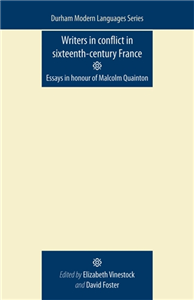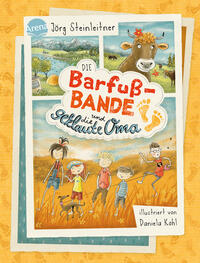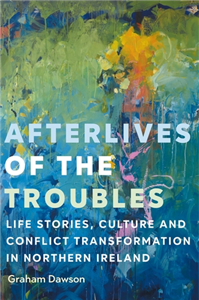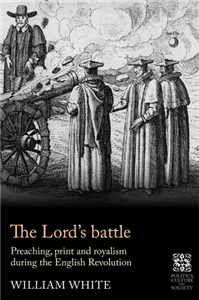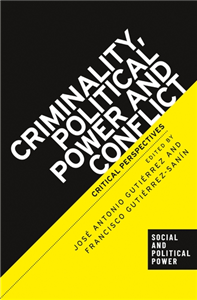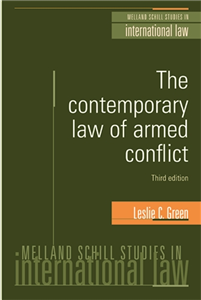Your Search Results
-
Reading Luxembourg
Reading Luxembourg is Luxembourg's export programme. Beyond the annual national stand at Frankfurt Book Fair, Reading Luxembourg is in charge of various missions, such as the presence at other fairs, festivals and literary events, a training offer for professionals of the book and publishing sector and strategic support to foreign rights sales. Reading Luxembourg is linking up publishers and authors from Luxembourg with stakeholders on an international level and providing information on available translation and publication grants.
View Rights Portal
-
Promoted ContentApril 2023
The Battle for Water
In the century of drought
by Jürgen Rahmig
— Water as a reason for war and a political instrument of power — Unique overview of global water conflicts — Foreword by Wolfgang Ischinger Every year, droughts in African countries cause hundreds of thousands of deaths and much suffering. Europe also experienced drought in 2022's summer of record temperatures. Without water, there can be no life. More and more people are suffering from water shortages. Climate change is fuelling the distribution battles for water; violent conflicts over this precious resource are the order of the day. Whether the protests in Iraq, the war in Syria, in the Himalayas, the Nile conflict and in many other places, water is already a reason for war and is being misused as a political instrument of power. The construction of huge dams, the targeted closure of locks, river diversions, water and land grabbing bring wars over the "blue gold" with them. In a unique overview, journalist Jürgen Rahmig describes the struggle for water in the 21st century. Where do dangers lurk today; where will they be tomorrow, and how can we prevent wars over precious water?
-
Promoted ContentLiterary studies: fiction, novelists & prose writersJanuary 2015
Imagining women readers, 1789–1820
by Richard Ritter
-
 Trusted Partner
Literary studies: c 1500 to c 1800October 2012
Trusted Partner
Literary studies: c 1500 to c 1800October 2012Writers in Conflict in Sixteenth-Century France
Essays in honour of Malcolm Quainton
by Elizabeth Vinestock, David Foster
These essays written to celebrate the distinguished career of Renassiance scholar, Professor Malcolm Quainton, confirm the idea that the sixteenth-century in France was deeply marked by conflict, but readers expecting to find a volume wholly devoted to studies of war and religious disputation will be intrigued to discover that these rare not the only topics discussed. A number of subtle analyses reveal the stresses of internal conflict experienced by writers and woven into the fabric of their compositions. The three sections focus respectively on living and writing in conflict, the Wars of Religion, and intertextuality as conflict. Subjects include Ronard, Baïf, Du Bellay, D'Aubigné, sonnets by Mary Queen of Scots and the political role of court festivities, while a previously unknown riposte to Clément Marot is first published here. This book will appeal to scholars and students of French language, literature and culture, and sixteenth-century European history.
-
 Trusted Partner
Trusted Partner
-
 Trusted Partner
Humanities & Social SciencesOctober 2016
Trusted Partner
Humanities & Social SciencesOctober 2016Medicine, health and Irish experiences of conflict, 1914–45
by David Durnin, Ian Miller
-
 Trusted Partner
Literature & Literary StudiesJanuary 2019
Trusted Partner
Literature & Literary StudiesJanuary 2019Texts and readers in the Age of Marvell
by Christopher D'Addario, Matthew C. Augustine, Christopher D'Addario, Michael Scoenfeldt, Randy Robertston, Derek Hirst, Kathleen Lynch, Nigel Smith, Timothy Raylor, Anne Cotterill, Joad Raymond, Matthew C. Augustine, Michael McKeon, Steven Zwicker
-
 Trusted Partner
Children's & YA
Trusted Partner
Children's & YAThe Barefoot Crew and the Stolen Granny
by Jörg Steinleitner/ Daniela Kohl
Something smells of adventure: summer holidays in the country can be like a whodunnit – where else can you find a missing Granny together with a real treasure and eight bare feet? Jörg Steinleitner brings his readers a true sense of well-being, in a world full of adventure. With varied and powerful illustrations by bestselling illustrator Daniela Kohl. Whoever thinks that summer holidays in the village are boring is mistaken: on the very first day of the holidays, Tanne’s Granny Schnitzel disappears without trace. It’s a good job that Corvin (9), Kiki (10), Ben (10) and Tanne (11) were just about to form a gang: the Barefoot Crew. And soon they have more than just bare feet and a kidnapped Granny to contend with – there’s also a real treasure! A hugely exciting criminal case with a breathtaking natural backdrop, together with varied feel-good factors that prompt readers to dream, discover and share in the story’s thrills. Best-suited for boys and girls aged 8+.
-
 Trusted Partner
Humanities & Social SciencesJuly 2016
Trusted Partner
Humanities & Social SciencesJuly 2016The European Union's fight against terrorism
by Christopher Baker-Beall
-
 Trusted Partner
The ArtsJanuary 2019
Trusted Partner
The ArtsJanuary 2019Robert Bresson
by Keith Reader
This book provides a comprehensive introduction to the work of Robert Bresson, one of the most respected and acclaimed directors in the history of cinema.. The first monograph on his work to appear in English for many years dealing not only with his thirteen feature-length films but also his little-seen early short Affaires publiques and his short treatise Notes on cinematography.. The films are considered in chronological order, using a perspective that draws variously on spectator theory, Catholic mysticism, gender theory and Lacanian psychoanalysis.. The major critical responses to his work, from the adulatory to the dismissive, are summarized and analyzed.. The work includes a full filmography and a critical bibliography.
-
 Trusted Partner
Trusted Partner
-
 Trusted Partner
Humanities & Social SciencesJanuary 2026
Trusted Partner
Humanities & Social SciencesJanuary 2026Afterlives of the Troubles
Life stories, culture and conflict transformation in Northern Ireland
by Graham Dawson
Focusing on experiential life stories across a range of forms and practices, this book investigates subjectivity, culture and the cultural politics of representation as a neglected dimension of conflict transformation in the Northern Irish peace process. Interdisciplinary critical perspectives from historical cultural studies, oral history and popular-memory theory inform close interpretive engagement with life stories in their cultural, historical and geographical contexts. This enables exploration of the complex temporal dynamics of 'post-conflict' subjectivities in the lengthening 'afterlife' of the Troubles, where feelings attached to conflict experiences are not 'past' but haunt the present, and memory-work carries future-oriented desires for truth, justice and reconciliation. Through case studies responding to the evolving peace process through this prism of life-storytelling, Afterlives maps a contested history of legacy policy-making and approaches to 'dealing with the past', from devolution in 2005-7 through to the Legacy and Reconciliation Act of 2023.
-
 Trusted Partner
Political structure & processesMay 2017
Trusted Partner
Political structure & processesMay 2017The Europeanisation of Conflict Resolutions
Regional integration and conflicts from the 1950s to the 21st century
by Series edited by Emil Kirchner, Boyka Stefanova, Thomas Christiansen
This book is about the EU's role in conflict resolution and reconciliation in Europe. The central argument of the book is that the evolution of the policy mix, resources, framing influences and political opportunities through which European integration affects conflicts and processes of conflict resolution demonstrates a historical trend through which the EU has become an indispensable factor of conflict resolution . It begins with the pooling together of policy-making at the European level for the management of particular sectors (early integration in the European Coal and Steel Community) through the functioning of core EU policies (Northern Ireland) to the challenges of enlargement (Cyprus) and the European perspective for the Western Balkans (Kosovo). The book will be of value to academics and non-expert observers alike with an interest in European integration and peace studies.
-
 Trusted Partner
Business, Economics & LawMay 2005
Trusted Partner
Business, Economics & LawMay 2005The UN, human rights and post-conflict situations
by Nigel White, Dirk Klaasen
The United Nations is one of the largest providers of assistance in post-conflict situations in the world. This book considers the human rights standards applicable to the United Nations and applied by the United Nations in post-conflict situations, including East Timor, Kosovo and Afghanistan. It looks at legal principles, peace agreements, support of democracy, human rights protection, development and other forms of reconstruction with which the UN has become involved, including the grandly-named task of "state-building". It deals both with the obligation upon the UN to respect human rights in post-conflict situations, and the obligation upon the UN to ensure that human rights are respected by those in positions of power in post-conflict situations. Written by an internationally renowned list of contributors, this book will be of vital use to anyone studying conflict analysis, international relations, international law and the role of the United Nations on the world stage. ;
-
 Trusted Partner
Humanities & Social SciencesMarch 2014
Trusted Partner
Humanities & Social SciencesMarch 2014Transforming conflict through social and economic development
Practice and policy lessons from Northern Ireland and the Border Counties
by Sandra Buchanan
Transforming conflict through social and economic development examines lessons learned from the Northern Ireland and Border Counties conflict transformation process through social and economic development and their consequent impacts and implications for practice and policymaking, with a range of functional recommendations produced for other regions emerging from and seeking to transform violent conflict. It provides, for the first time, a comprehensive assessment of the region's transformation activity, largely amongst grassroots actors, enabled by a number of specific funding programmes, namely the International Fund for Ireland, Peace I, II and III and INTERREG I, II and IIIA. These programmes have been responsible for a huge increase in grassroots practice which to date has attracted virtually no academic analysis; this book seeks to fill this gap. In focusing on the politics of the socioeconomic activities that underpinned the elite negotiations of the peace process, key theoretical transformation concepts are firstly explored, followed by an examination of the social and economic context of Northern Ireland and the border counties. The three programmes and their impacts are then assessed before considering what policy lessons can be learned and what recommendations can be made for practice. This is underpinned by a range of semi-structured interviews and the author's own experience as a project promoter through these programmes in the border counties for more than a decade. The book will be essential reading for students, practitioners and policymakers in the fields of peace and conflict studies, conflict transformation, peacebuilding, post-agreement reconstruction and the political economy of conflict and those interested in contemporary developments in the Northern Ireland peace process. ;
-
 Trusted Partner
Humanities & Social SciencesNovember 2024
Trusted Partner
Humanities & Social SciencesNovember 2024Unofficial peace diplomacy
Private peace entrepreneurs in conflict resolution processes
by Lior Lehrs
This book analyses the international phenomenon of private peace entrepreneurs. These are private citizens with no official authority who initiate channels of communication with official representatives from the other side of a conflict in order to promote a conflict resolution process. It combines theoretical discussion with historical analysis, examining four cases from different conflicts: Norman Cousins and Suzanne Massie in the Cold War, Brendan Duddy in the Northern Ireland conflict and Uri Avnery in the Israeli-Palestinian conflict. The book defines the phenomenon, examines the resources and activities of private peace entrepreneurs and their impact on the official diplomacy, and examines the conditions under which they can play an effective role in peace-making processes. This book is relevant to United Nations Sustainable Development Goal 16, Peace, justice and strong institutions.
-
 Trusted Partner
Humanities & Social SciencesApril 2023
Trusted Partner
Humanities & Social SciencesApril 2023The Lord’s battle
Preaching, print and royalism during the English Revolution
by William White
This book explores the preaching and printing of sermons by royalists during the English Revolution. While scholars have long recognised the central role played by preachers in driving forward the parliamentarian war-effort, the use of the pulpit by the king's supporters has rarely been considered. The Lord's battle, however, argues that the pulpit offered an especially vital platform for clergymen who opposed the dramatic changes in Church and state that England experienced in the mid-seventeenth century. It shows that royalists after 1640 were moved to rethink earlier attitudes to preaching and print, as the unique potential for sermons to influence both popular and elite audiences became clear. As well as contributing to our understanding of preaching during the Civil Wars therefore, this book engages with recent debates about the nature of royalism in seventeenth-century England.
-
 Trusted Partner
Humanities & Social SciencesSeptember 2013
Trusted Partner
Humanities & Social SciencesSeptember 2013Conflict to peace
Politics and society in Northern Ireland over half a century
by Bernadette Hayes, Ian McAllister
After three decades of violence, Northern Ireland has experienced unprecedented peace. This book examines the impact of the 1998 Agreement which halted the violence on those most affected by it - the Northern Irish people themselves. Using public opinion surveys conducted over half a century, this book covers changes in public opinion across all areas of society and politics, including elections, education, community relations and national identity. The surveys show that despite peace, Protestants and Catholics remain as deeply divided as ever. The vast majority marry co-religionists, attend religious schools and have few friends across the religious divide. The results have implications not just for peace-making in Northern Ireland, but for other societies emerging from conflict. The main lesson of peace-making in Northern Ireland is that political reform has to be accompanied by social change across the society as a whole. Peace after conflict needs social as well as political change. ;
-
 Trusted Partner
Humanities & Social SciencesDecember 2025
Trusted Partner
Humanities & Social SciencesDecember 2025Criminality, political power and conflict
Critical perspectives
by José Antonio Gutiérrez Danton, Francisco Gutiérrez Sanín
In the aftermath of the greed vs. grievance debate and the new wars paradigm, the focus of conflict studies shifted decisively to understanding "predatory" behaviours as the raison d'etre of contemporary conflict. Conflict was viewed as a continuum in which the more you engage in criminal behaviour, the less political you are.This approach has been robustly criticised over the past 15 years; however, in the process, we have been left with unsuitable concepts to handle the complex interactions between civil war, political power and criminality. The departure point here is the understanding of politics and criminality as two historically differentiated domains of human activity. Different, but interrelated, often co-constitutive and overlapping. Here, we empirically and theoretically explore their interactions, connections, and convergences, not focusing solely on irregular actors, thus bringing back the State and elites into this debate.
-
 Trusted Partner
Business, Economics & LawMay 2008
Trusted Partner
Business, Economics & LawMay 2008The contemporary law of armed conflict
by Leslie C. Green, Iain Scobbie, Jean D'Aspremont, Dominic McGoldrick
Green's The contemporary law of armed conflict has been acclaimed as one of the most significant works on the law of armed conflict to appear in recent years. The first edition was adopted as a basic text by military institutions and educational establishments throughout the world and is among the most comprehensive and readable works on the subject. This new edition brings the work up to date, examining the significance of the World Court's Opinion on the legality of the nuclear weapon. It also considers the importance of such matters as the laser weapon agreement, the mines treaty and the jurisprudence of the two war crimes tribunals, that for the former Yugoslavia as well as for Rwanda, and assesses the role of the proposed International Criminal Court as it may affect the law of armed conflict. The book applies a practical as well as a theoretical approach, and draws on an extensive range of national and international practice. It is thus an indispensable reference for the armed forces and government defence organizations, as well as academics and students interested in the modern law of war. ;
-
 Trusted Partner
Business, Economics & LawJuly 2018
Trusted Partner
Business, Economics & LawJuly 2018The contemporary law of armed conflict (3rd edn)
by Leslie C. Green, Iain Scobbie, Jean D'Aspremont, Dominic McGoldrick
Green's The contemporary law of armed conflict has been acclaimed as one of the most significant works on the law of armed conflict to appear in recent years. The first edition was adopted as a basic text by military institutions and educational establishments throughout the world and is among the most comprehensive and readable works on the subject. This new edition brings the work up to date, examining the significance of the World Court's Opinion on the legality of the nuclear weapon. It also considers the importance of such matters as the laser weapon agreement, the mines treaty and the jurisprudence of the two war crimes tribunals, that for the former Yugoslavia as well as for Rwanda, and assesses the role of the proposed International Criminal Court as it may affect the law of armed conflict. The book applies a practical as well as a theoretical approach, and draws on an extensive range of national and international practice. It is thus an indispensable reference for the armed forces and government defence organizations, as well as academics and students interested in the modern law of war.







